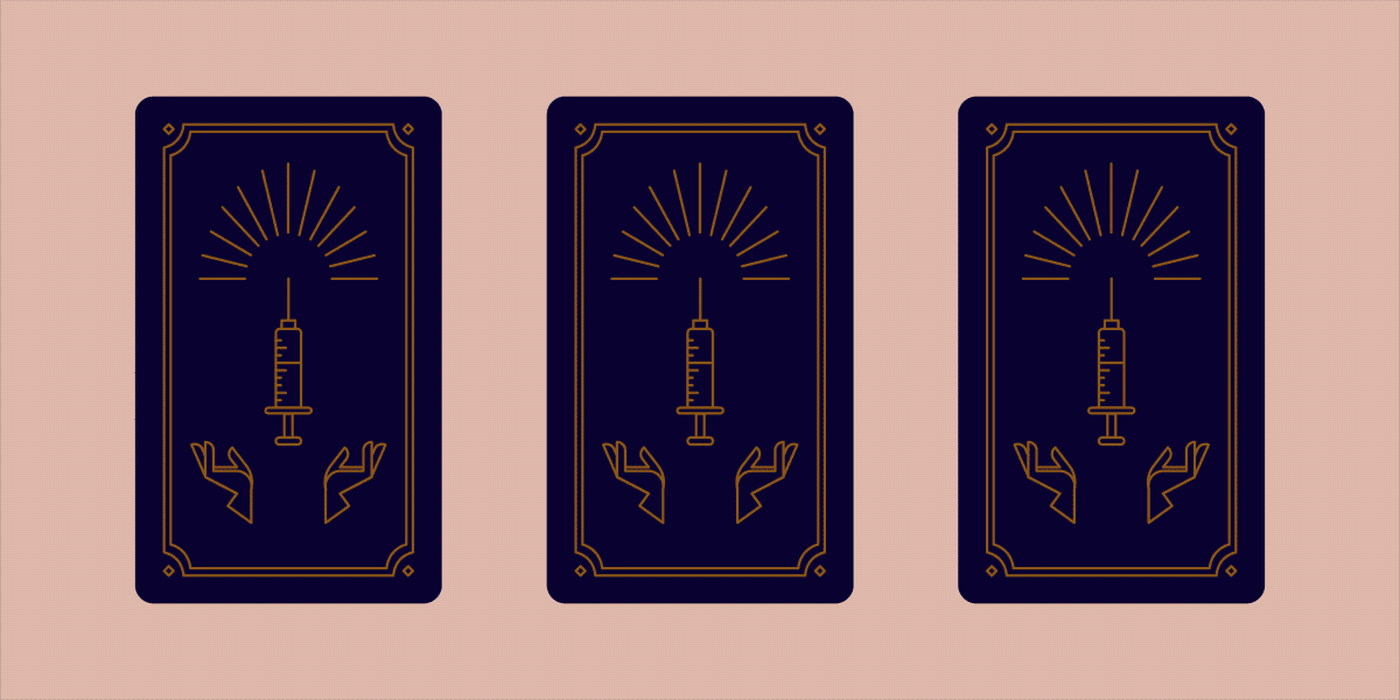It was a cheerful, sunny spring Saturday morning when I reported to our county’s COVID-19 vaccination clinic for my first shift as a medical volunteer. Inside the community college gymnasium, the atmosphere was similarly buoyant, as volunteers donned their colored vests and prepared to vaccinate our fellow New Jersey residents.
“Today, we are expecting 700 first-time vaccine recipients,” the site leader informed us as she handed out assignments for the morning. I was assigned to be a vaccinator.
Thankfully, a quick crash course was provided on vaccine administration — something I hadn’t done since medical school 20 years ago. I (re)learned shoulder anatomy (apologies to my medical school anatomy professors) and felt confident I could successfully deliver the vaccine “two to three fingerbreadths below the acromion process.”
The lines of patients began to form at 8:45 a.m. Following check-in, volunteers directed patients to open vaccination stations. I readied my tablet computer, alcohol swabs, and vaccine syringes, eager — and a tad nervous — to vaccinate my first patient.
What transpired over the next three hours was nothing short of spectacular. I had the opportunity to share this historic moment with over 30 individuals between the ages of 38–92, representing over a dozen different nationalities.
Some came alone, others with children, grandchildren. Spouses arrived to be vaccinated side by side.
A Peruvian gentleman livestreamed the event to relatives in his home country.
An elderly Black woman was brought in a wheelchair by her doting granddaughter. I had difficulty understanding the grandmother’s speech and learned she had suffered a stroke only a few weeks prior.
A Polish woman in her 60s was emotional as she approached the table. Her sister, younger by four years, had passed away last fall from COVID-19-related complications.
One middle-aged woman was receiving her first vaccine in over 30 years, finally convinced of the vaccine’s importance by her accompanying friend. Expecting the worst, she was incredulous as I removed the needle and exclaimed, “All done. Congratulations!”
The morning passed quickly. After cleaning up my station, I headed for the break room, eager to grab a bottle of water and debrief with fellow volunteers, only to see a middle-aged Indian American woman slump over in her chair.
As we lowered her to the ground and took her vital signs, I reassured family members that she would be fine. The few patients who remained in the monitoring area were remarkably calm, even helpful, assisting us by moving chairs out of the way.
She slowly came to and thanked us for our help, smiling with what I sensed was a hint of embarrassment.
It seemed nothing could break the spirit of the day.
As I left the gym and reentered the brilliant sunshine, I felt sanguine, buoyed by the intimacy of my interactions with this diverse group of grateful vaccine recipients. Despite knowing nothing about me, these individuals trusted me. In the minutes before my needle pierced the skin of their upper arms, these individuals shared a year’s worth of despair and anxiety, along with their hopes for better days. In doing so, they rekindled my love for medicine.
I was reminded of what the doctor-patient relationship is at its best: a mutually beneficial interaction built on trust, compassion, and goodwill. This unencumbered medical experience felt effortless in contrast to the bulkiness of day-to-day medical practice.
The essence of the doctor-patient interaction has become contaminated with burdensome EMR tasks and inflexible documentation requirements. Even as we sit across from our patients, listening and nodding our heads, most of us are distracted, thinking about when we will have time to return patient phone calls, review lab results, and round in the hospital.
We need to refute the notion that every medical activity has to generate an RVU, result in a bill, or meet a quality metric. Many physicians feel the best way to validate our years of training and sacrifice is to be maximally productive. After all, why did we spend an extra three years in a fellowship? Why did we take out tens of thousands of dollars in student loans?
But this reasoning keeps us from spending time on things we enjoy both inside and outside of medicine. It contributes to burnout. We need more positive and unfiltered experiences in medicine to keep us going, to remind us why we chose this profession.
Vaccine recipients left that Saturday knowing they were on their way to immunity against a COVID-19 infection. It allowed them to finally exhale, worry less, and make plans for the future.
I, too, left with a shot in the arm that day — a reminder that my chosen profession, when stripped down to its core, can be uplifting and fulfilling.
Have you had an experience that restarted your love of medicine? Spread the love below!
Anish A. Sheth MD is Chief of Gastroenterology at Penn Medicine Princeton Health and author of several books on digestive health, including the best-seller, What's Your Poo Telling You?
Animation by Diana Connolly






